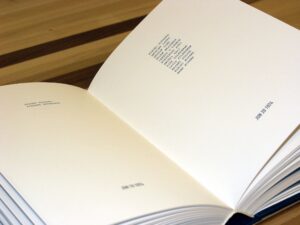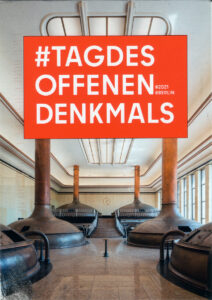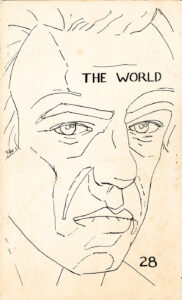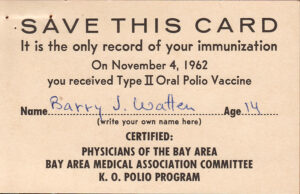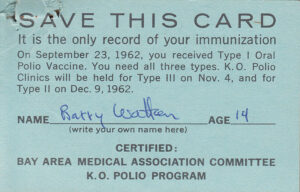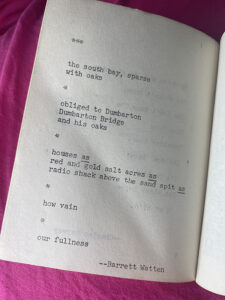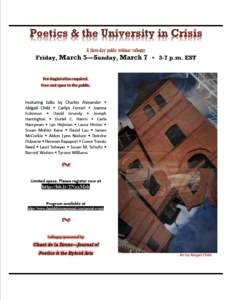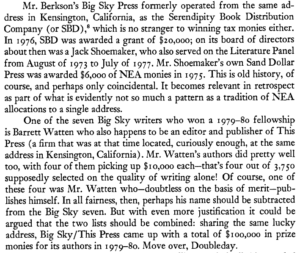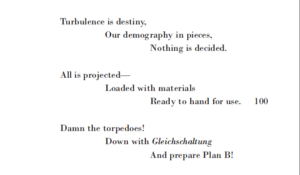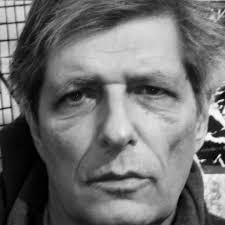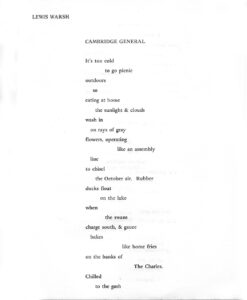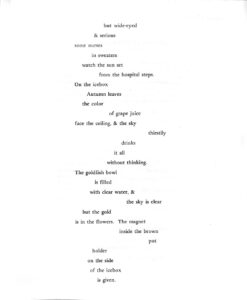I return here to the series of “I Met” posts, begun in January 2010 after the work of On Kawara. In a series of journal entries, On Kawara documented his life in art as identical to the names, location, and dates of his dealers, contacts, and friends, giving no further interpretation. Thus he interpreted his life as identical to his art, and his art as identical to its names, locations, and dates. This project is unique, and must be so, in its radicality; it is an essay on meaning as a “restricted code” that is at the same time a subtext of the public exhibition of his iconic works and the private circulation of artistic property (as I found when permission to reproduce one of his date paintings for Questions of Poetics was denied). In my entries, the purely conceptual project undergoes mutation to the forms of life and art I inhabit while still focusing on the intersection of names, locations, dates. At one point, the series achieved a kind of “feedback” state, as when people I met at conferences or readings would ask if there going to be an “I Met” for the event; alternately, for more than two years this form of work has been nearly impossible.
Wednesday, October 6
Delta DTW > LGA
Carla Harryman
Lisa Yuskavage @ David Zwirner
Jesse Murry @ David Zwirner
Alice Neel @ David Zwirner
Frank Moore @ David Zwirner
Tyler Mitchell @ Jack Shainman
John Currin @ Gagosian
Philip Guston @ Hauser & Wirth
Robert Rauschenberg @ Pace
Robert Longo @ Pace
Jeanne Liotta @ Microscope Gallery
Michael Gottlieb & Josef Kaplan
@ St. Mark’s Church
James Sherry
Lee Ann Brown
Tony Torn
Brenda Coultas
Drew Gardner
Kyle Dacuyan … More
